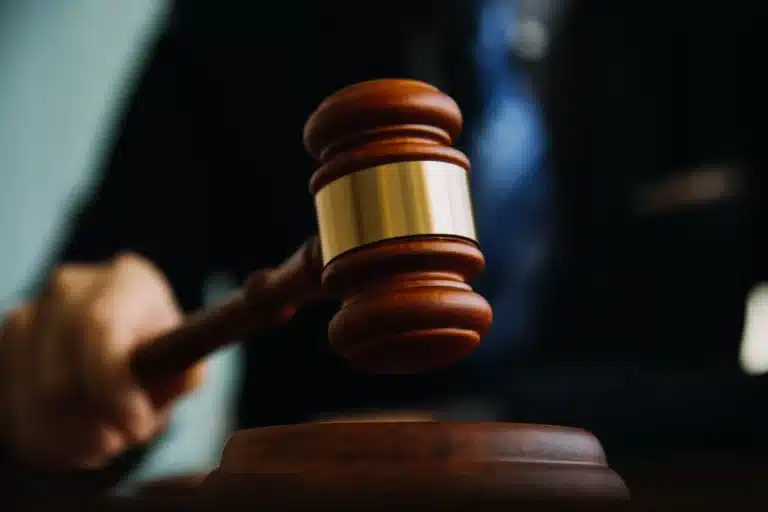What is the Process of a Florida Civil Lawsuit?
What is the Process of a Florida Civil Lawsuit?
The process of a Florida Civil Lawsuit is not an easy one. It’s a complex process that often takes even the most experienced Florida Lawyers many years to learn. Much of how the process unfolds is outlined by the Florida Rules of Court Procedure, specifically the Florida Rules of Civil Procedure. Whether you’re being sued as part of subrogation lawsuit, a car accident, or dog bite, our Orlando personal injury defense lawyers have the experience to navigate the process. Here is an overview of the steps involved in the lawsuit process in Florida:
What is a Complaint in a Florida Lawsuit?
Filing a Complaint in Florida: In Florida, a complaint is a legal document filed by the Plaintiff (the person suing someone else) that starts the lawsuit process and outlines the specific legal basis for the lawsuit itself. In Florida, the complaint would be filed with the clerk of court in the county which the lawsuit is being pursued.
The complaint must contain certain information, including:
- Identifying information of all parties involved
- A statement of the facts of the case
- A description of the specific legal claims being made, including the legal basis for those claims (subrogation, negligence, breach of contract, etc.)
- A request for relief, such as damages or an injunction
The purpose of the complaint is to outline the basis for the lawsuit so that both the Defendant (persons being sued) and the Court understand what has transpired. The Complaint is typically served to the Defendant along with a summons, which outlines the next steps the defendant needs to take. In Florida, the defendant generally has 20 days from the date they are served with the complaint to file their Answer and Affirmative Defenses, Motion to Dismiss, and/or other responsive pleading/document.
What is Discovery in a Florida Lawsuit?
Different Types of Florida Discovery: After the complaint has been filed, the parties typically enter a phase of the litigation process called discovery. Discovery is a process in a Florida civil lawsuit where both parties gather and exchange information and evidence related to each side’s position on the case. The discovery process is important because it helps each side fully understand the facts of the case, while also identifying any potential strengths or weaknesses.
There are several tools that can be used during the discovery process, including:
- Depositions: A deposition is an “question and answer” session of a witness or party to a lawsuit. Now a days many depositions take place virtually via Zoom or other system. During the deposition the attorney’s will ask the deponent (person who is being deposed) various questions to see what information they have. Other types of depositions may require that the deponent provide the attorney with documents or other evidence instead of testifying about what the know. Learn more here.
- Interrogatories: Interrogatories are a series of written questions provided from one party to another. In Florida, interrogatories must be signed and notarized one the responses are completed. The person who completes the interrogatories answers the questions under oath. A party must generally response to interrogatories within 30-days of receipt.
- Requests for Production: A request for productions is a document by which one party request that the other party “produce” or turn over documents that are being requested. A party must generally respond to requests for production within 30-days of receipt.
- Requests for Admissions: A request for admissions is a written request for the opposing party to admit or deny certain facts or the authenticity of certain documents. While a party must usually respond to request for admission within 30-days, their failure to respond on time will be deemed and admission of any request they fail to respond to.
While in discovery, either party, or even 3rd party witnesses, can object to certain requests that are made of them. The objection will often then be argued in front of a Judge who will make the decision whether the objection was warranted. The discovery process can be a lengthy and complex process, and it is important for parties to carefully follow the rules and deadlines set by the court.
What is Florida Motion Practice During a Lawsuit?
What is a Motion and What are some Different Types of Motions: From the starting point of the lawsuit into discovery phase, and up to and including trial, either party can file motions with the court to request a specific action or ruling. Florida motion practice refers to making a request to the Court in which a Judge decides one way or another. A motion is a request to the court for a specific action or ruling on an issue.
There are many different types of motions that can be filed in a Florida lawsuit, including:
- Motion to Dismiss: A motion to dismiss asks the Court to dismiss the lawsuit (throw out the lawsuit) because of some error or deficiency on the part of the Plaintiff. Motions to dismiss are often filed based on technical aspects of complaint. It is often said in Florida that a motion to dismiss cannot look beyond what is contained in, or attached to, the complaint itself. The motion to dismiss go outside the “four corners” of the complaint.
- Motion for Summary Judgment: A motion for summary judgment is a request to the court to enter judgment in favor of one party because there is no genuine dispute of material fact, and the person who filed the motion is entitled to judgment as a matter of law. A motion for summary judgment is often a quicker way to put an end to a case rather than waiting for trial. The rules surrounding motions for summary judgment are very technical and must be complied with precisely.
- Motion to Strike: A motion to strike is a request to the court to strike (remove) certain pleadings or evidence from the record because they are immaterial, scandalous, or prejudicial.
- Motion for a Continuance: A motion for a continuance is a request to the court to postpone a hearing or trial to a later date for legally justifiable reason.
- Motion In Limine: A motion in limine is a request to the court to exclude certain evidence from being presented at trial because it is unfairly prejudicial or otherwise inadmissible.
Motions are typically filed with the court and served on the opposing party, or their attorney, who then has the opportunity to respond. In most instances the court will conduct a hearing where the judge will hear argument about each sides’ position and then decide whether to grant or deny the motion. Motion practice is an important part of a Florida lawsuit, because it allows the parties to narrow the issues and potentially dispose of the case before it goes to trial.
What Happens During Settlement Negotiations?
What are settlement negotiations: Before a case goes to trial, the parties may try to resolve the issues of the lawsuit through settlement negotiations. Settlement negotiations in a Florida lawsuit refer to the process of attempting to reach a resolution of the case without further court involvement or need for trial. Settlement negotiations can take place both before and after a lawsuit is filed. The process is fluid and is not necessarily are stringent as the litigation process normally requires.
There are several ways to facilitate settlement negotiations in a Florida lawsuit, including:
- Mediation: Mediation is a process where the parties get together to try to resolve the issues in the lawsuit. The process involves a mediator who is a neutral third party whose goal is to try to get everyone to agree to some sort of a settlement. The mediator is not a judge and has not decision-making authority. Florida considers most of what takes place during mediation to be confidential settlement negotiations. The process is considered confidential in order to encourage the parties to be open and truthful in trying to resolve the case without fear that some offer will be used against them later.
- Direct negotiations: Parties can also engage in direct negotiations, either with or without the assistance of attorneys. In these negotiations, the parties simply communicate with each other in an attempt to resolve the subject of the lawsuit.
If the parties are able to reach a settlement agreement, the agreement will usually be put into writing and signed by the parties. Once a settlement agreement is signed it can be submitted to the Court, where a request can be made to have the Judge approve the settlement. Settlement can be a quick and cost-effective way to avoid the time and expense of a trial.
What Happens During a Florida Civil Trial?
What is a Civil Trial: If the parties to the lawsuit are not able to resolve the issue amongst themselves through mediation and/or settlement negotiations, the case proceeds to trial. A civil trial in Florida is a legal proceeding in which a judge or jury hears and decides a case involving a dispute between private parties, such as individuals or businesses.
The civil trial process in Florida includes the following steps:
- Jury selection: If either party in the case requests a trial by jury, the process first being with selecting the jury itself. The process of jury selection is called voir dier. Many civil trial are “bench trials”, where there is no jury and the case is decided solely by the judge.
- Opening statements: Once a jury is selected each side will begin by giving their opening statements. Plaintiff will go first and defend will go second. The opening statement provides each side with a chance to frame their side of the case and explain the facts and evidence they intend of showing in support of their position.
- Presentation of evidence: Both parties will then present their evidence, which may include testimony from witnesses, documents, photographs, and other physical exhibits.
- Closing arguments: After the presentation of evidence on both sides, each party will have an opportunity to provide their closing arguments. This is each side’s chance to summarize the evidence presented and summarize their arguments in support of their position.
- Deliberations and verdict: The jury will retire to deliberate and reach a verdict based on the evidence presented and the judge’s instructions.
- Judgment: If the jury reaches a verdict in favor of one party, the judge will enter a judgment based on the verdict. If either party is dissatisfied with the outcome, they can file an appeal with a higher court.
What is an Appeal in Florida?
What is an Appeal: If either party is dissatisfied with the outcome of the trial, they can file an appeal with a higher court. Appeals are typically based on issues of law, rather than issues of fact, and are not intended to be a second trial of the case.
Overall, the lawsuit process in Florida can be lengthy and requires careful attention to legal procedures and deadlines. It is important for individuals and businesses to seek the guidance of an experienced Florida attorney to ensure that their rights and interests are protected throughout the process. If you are in need of a personal injury or personal injury defense attorney, call us today. Our offices are centrally located in Orlando, which allows us to provide legal representation throughout Florida. We are here to help.






